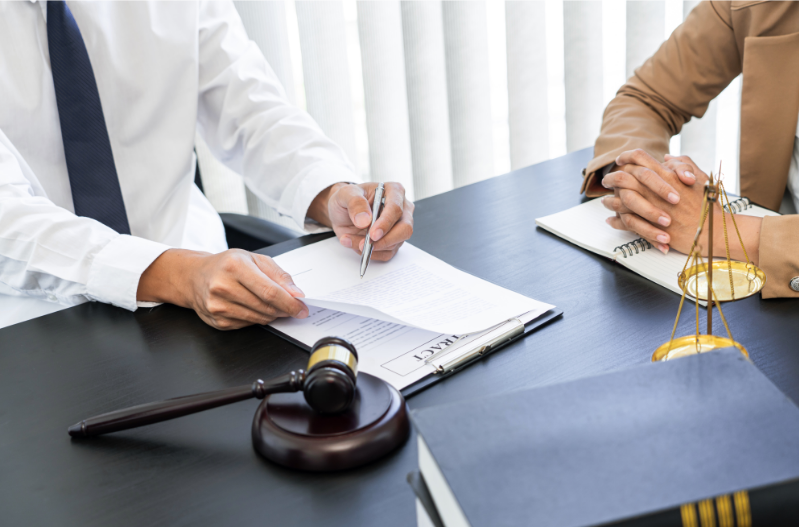
BANKRUPTCY ATTORNEY NEAR ME
In today’s article, I’ll teach you 1) what a bankruptcy attorney does, and 2) how to hire one. 2) How do you determine if you need a bankruptcy lawyer? 3) Where can I get a bankruptcy lawyer? 4) How much will it cost you to engage a bankruptcy lawyer? 5) Some tips for collaborating with a bankruptcy lawyer.
Bankruptcy lawyers, both corporate and personal, are in higher demand than ever before. The economy’s steep freefall, which has resulted in substantially reduced business revenues, has had an impact on jobs and family finances. This has drawn attention to bankruptcy lawyers.
To begin, let’s take a look at the basics of bankruptcy law.

What is Bankruptcy Law?
The filing of a petition in the United States Bankruptcy Court requesting debt relief is the first step in a bankruptcy proceeding. Creditors have the right to pursue at least a portion of the debt owed to them. There are two types of bankruptcies: consumer and business. Bankruptcies under Chapters 7, 9, 11, 12, and 13 are the most common. Here’s a quick rundown of each:
Chapter 7
This is often a consumer bankruptcy, and it is the most common debt relief procedure in the United States. Also called a liquidation or pure bankruptcy, businesses may also petition for Chapter 7 bankruptcy.

Chapter 9
Debt relief is also available to municipalities and other taxing agencies. Chapter 9 bankruptcy is a reorganization of debt where the bankruptcy court is asked to approve a payment plan.
Chapter 11
A firm can file a Chapter 11 bankruptcy petition to restructure its debt. This type of relief allows the debtor to present a plan to keep his or her business open while paying off his or her creditors over time.
Chapter 12
This is a reorganization plan that isn’t seen very often on Wall Street or any of the nation’s other financial hubs, but its goal is to save a family fishing business or farm. It also includes a three- to a five-year reorganization plan.
Chapter 13
This type of bankruptcy is for persons who are working but are drowning in debt, being unable to repay it. A Chapter 13 bankruptcy may be able to rescue a family’s house and car.

Signs You Need a Bankruptcy Attorney
Financial difficulty does not usually occur overnight or without warning. It’s usually a slow process, with multiple flare warnings appearing as the situation worsens.
When warnings go unheeded, your finances can go up in smoke, and there’s nothing you can do about it except declaring bankruptcy.
The following are some tell-tale indicators that you’re on the verge of filing for bankruptcy:
- You only pay the bare minimum on past-due invoices every month.
- Your credit cards are maxed out, and your debt is increasing rather than decreasing each month.
- You pay for everyday expenses like food, rent, and utilities with credit cards.
- You’re paying monthly overdraft fees.
- Collection agencies are phoning your home 24 hours a day, 7 days a week.
- Creditors are suing you or threatening to sue you because you haven’t paid your bills.
- You are ineligible for debt-relief programs such as debt management or consolidation loans.
- A job loss, divorce, or medical setback that can completely devastate your finances.
Bankruptcy isn’t always the first choice for debt relief, but it can be a good alternative in some situations. There are, of course, certain drawbacks. It can harm your credit for up to ten years and make it difficult to obtain security clearances.
If you are unable to resolve your problems in fewer than five years, bankruptcy may be a possibility.

Why Hire a Bankruptcy Attorney?
Bankruptcy law can be difficult to understand. Unless they specialize in bankruptcy law, most attorneys do not handle bankruptcy matters.
As a result, you’ll want to opt for a bankruptcy lawyer, someone who knows everything there is to know about bankruptcy laws, rules, and processes. When speaking with a bankruptcy attorney, be sure to inquire about the attorney’s background and any particular training he has in bankruptcy-related problems.
In addition, the lawyer should be willing to talk about bankruptcy options. You want a bankruptcy lawyer who will not pressure you into filing a Chapter 7 or Chapter 13 bankruptcy without first looking into all of your debt relief options.
Before advising you on the best way to get out of debt, a bankruptcy attorney should be willing to answer all of your questions and completely investigate all of your possibilities.
Consumers can opt to hire an attorney or represent themselves in bankruptcy, but as the statistics from the American Bankruptcy Institute shows, choosing an attorney has a significant advantage.
The current math on the matter is mind-boggling:
Only one out of every twenty-five people who file Chapter 7 with the help of an attorney is granted a release. One out of every three people who file on their own will not be discharged.

Only roughly one out of every 50 people who file for bankruptcy on their own in Chapter 13 gets a discharge. If you hire a lawyer, you have a greater than a four-out-of-ten chance of succeeding.
The reasons for this are rather self-explanatory. Bankruptcy is a difficult topic to comprehend. Consumers who claim they don’t have the money are owed money by creditors. Both sides’ lawyers are attempting to persuade courts that their respective clients are correct.
You could lose your case if you aren’t familiar with filing legal documents or explaining your case eloquently. An experienced bankruptcy attorney understands what paperwork needs to be filed and when deadlines must be met. An experienced bankruptcy attorney is familiar with the judges involved and the arguments that must be made to get the desired outcome.
Furthermore, wrongly completing the papers can have disastrous consequences. It’s possible that a paperwork blunder for a Chapter 7 bankruptcy case can cost you your home! When you hire an attorney, you’re less likely to make mistakes like this, but it happens all the time when you file on your own.
This is why hiring an attorney has such a greater success rate than filing on your own. A skilled bankruptcy attorney should be able to provide you with at least these four benefits:
- A free introductory meeting to obtain a better understanding of your situation.
- Guidance on various choices, such as which bankruptcy to file.
- Scrutiny to ensure all essential bankruptcy paperwork has been completed.
- Legal representation in court.
Working with a bankruptcy lawyer has several advantages in general. An attorney can assist you with the following during a bankruptcy case:
- Give you guidance on when the optimum moment is to file bankruptcy so you don’t end up in a worse financial predicament than you were before.
- Assist with asset selection. Certain assets are shielded from the bankruptcy proceedings when you file Chapter 7, allowing you to keep them. Your lawyer should be able to determine which exemptions you are eligible for and assist you in avoiding unnecessary asset loss.
- Assist with the filing of your bankruptcy petition by completing documentation.
- Attend the creditors’ meeting with you.
Above all, a bankruptcy lawyer assists you in navigating what can be a difficult procedure for those who are unfamiliar with it.

Finding a bankruptcy attorney near me
If you’re thinking about filing for bankruptcy, getting a referral from someone you trust can help you select an attorney. Your friends and acquaintances may be better knowledgeable about your condition and needs, and may even have first-hand experience.
However, this is not a possibility for everyone. Here are a few alternative possibilities to explore if you can’t acquire a recommendation from someone you know.
- Legal aid: Legal aid organizations offer low-income individuals free legal counsel. They may even choose to represent you for free if you meet certain criteria.
- National Association of Consumer Bankruptcy Attorneys (NACBA): The NACBA is a professional trade association for bankruptcy lawyers who represent consumers. To discover an attorney in your area, look through the organization’s member database.
- National Association of Consumer Advocates (NACA): The NACA is a consumer advocacy organization that works on several topics, including bankruptcy.
- Online directories: Several websites list lawyers and law firms by geography and expertise. Lawyers.com, Avvo, and LegalZoom are just a few examples. Although some resources provide peer and client reviews, appearing in one of these directories does not imply that a lawyer’s legal talents have been endorsed.
- Your state bar association: These organizations can assist you in finding a bankruptcy attorney in your area.
While looking for a bankruptcy attorney to represent you, keep the following points in mind.

1. Find a specialist.
Lawyers practice in a variety of fields, but your best bet is to hire someone who specializes in bankruptcy law. Attorneys who do a little bit of everything are unlikely to be familiar with the nuances of bankruptcy law or to be up to date on the most recent legal developments in this field.
It’s a positive indicator if you’re a member of organizations like the National Association of Consumer Bankruptcy Attorneys.
There are a plethora of services that can assist in finding and vetting candidates on the internet, but traditional approaches can also be effective. Consult your neighbors. Consult your family and friends. (You must, indeed, swallow your pride.) Perhaps there are lawyers on the board of directors of your homeowner’s organization. Your church’s board of directors almost certainly includes lawyers. Request recommendations from each of them.
The American Bar Association (findlegalhelp.org), the Legal Services Corporation (LSC.gov), and the federal court system are all good places to start (uscourts.gov). For discovering economical bankruptcy attorneys, Avvo (avvo.com) and Martindale-Hubbell (martindale.com) are credible rating services.
State and local bar associations are also useful tools; simply type your state or city into your favorite search engine, followed by the terms “bar association” and “bankruptcy attorney.”
2. Select a bankruptcy attorney with sufficient experience.
Start by identifying and vetting potential candidates. Complete the task by inquiring about an attorney’s amount of experience, interviewing the few who fulfil your requirements, and finally hiring the one who feels most compatible. It isn’t always true that someone with more years of experience is more prepared than someone with fewer years of experience. What matters is the number of successful bankruptcy cases they’ve handled.
Many websites, including Avvo and Martindale-Hubbell, have starred peer ratings and, like Amazon, offer searches based on star counts. Pay special attention to lawyers whose photos have small red hexagonal indicators with “AV” in the center at Martindale-Hubbell. That is the highest rating they have received.
A word of caution: Be wary of four-star attorneys with only a few reviews; they could all be from teammates on his (or her) softball team.
Almost certainly, you’ll need to engage a bankruptcy attorney. Even though the last major amendment to bankruptcy law was passed in 2005, the law’s meaning is constantly changing. A specialist attorney’s membership in the National Association of Consumer Bankruptcy Attorneys (nacba.org), which keeps them up to date on pertinent judgements, is also a good sign.
Examine whether your potential attorneys are certified, which “means that the certified attorney has satisfied stringent, objective requirements and has proved understanding in bankruptcy and/or creditors’ rights law,” according to the American Board of Certification (abcworld.org).
What else is there to say? Have they written articles for scholarly journals? Are they in high demand as bankruptcy conference speakers? Both denote lawyers who are regarded as experts by their peers.
Finally, look at the attorneys’ previous ethics concerns. The website of the state bar is usually a useful place to look for such information.
After that, you’ll be ready for interviews. Keep reading to find out some key questions to ask a potential bankruptcy attorney you want to hire.
At least three bankruptcy attorneys should be scheduled for comparison purposes. Also, if a strong prospect costs a little consultation price, don’t be put off. If you and the attorney believe you’re a good fit, that fee can usually be used to your bill.
Make sure you know what the lawyer will require from you before you go so they can properly examine your situation.
“There are some professionals who have practiced bankruptcy law for many years but have never truly understood the subject,” the National Association of Consumer Bankruptcy Attorneys (NACBA) warns. Other lawyers have adopted a broad practice, submitting cases every now and then. If they’ve been practicing for 25 years but haven’t had much experience with bankruptcy, it doesn’t mean they have the knowledge you require.

3. Look for bankruptcy lawyers who are familiar with the area.
Apart from bankruptcy rules, the attorney should be acquainted with the local legislation of the court where your bankruptcy case will be filed. Bankruptcy proceedings differ from one location to the next. That’s why you should look for a bankruptcy lawyer that has worked in the area where you’re filing. They can help you by utilizing their expertise in local court procedures and staff.
4. Avoid bankruptcy mills.
There are companies known as “bankruptcy mills” that handle a huge number of cases without focusing on the details of each client’s case. Attorneys who take such an assembly-line approach should be avoided.
There are also “petition preparers,” who are not licensed attorneys but will simply fill out your bankruptcy form. They won’t be able to give you legal advice or guide you through the bankruptcy process. Also, be mindful of hiring them.
Bankruptcy mills, or high-volume law companies that churn customers like used-car salesmen, should also be avoided.
The following are some symptoms that you’re being pushed through a mill:
- They make a lot of noise.
- They file a huge number of bankruptcy cases each month
- They provide little contact between clients and attorneys, depending mainly on non-lawyer support workers for the filing process
- They fail to file paperwork on time
- They show up unprepared for hearings
Avoid being “milled” while looking for a bankruptcy lawyer. It makes no difference how much you have. Empathy, experience, and cost all play a role.
5. Work with people with whom you feel at ease.
At the end of the day, you should choose a bankruptcy attorney with whom you are at ease. Look for someone who will take the time to listen to you and learn the details of your case so that they can best understand and represent you.

What Should You Ask a Bankruptcy Attorney?
When you meet with a bankruptcy attorney, you want to feel confident in their abilities and that they are interested in helping you solve your problem. Many bankruptcy attorneys provide free consultations, so take advantage of this opportunity to locate a lawyer you trust. It’s critical to be prepared while attending those meetings.
Here is a list of some of the questions you might wish to ask an attorney to help you evaluate them.
- Do you have any experience with bankruptcy? Bankruptcy rules are intricate, so make sure you’re working with someone who knows all of the ins and outs of the law, as well as how it may affect you. You should avoid engaging with a bankruptcy attorney who has little or no experience.
- On an annual basis, how many bankruptcy cases do you file? • How big is the lawyer’s or affiliate firm’s practice? Smaller enterprises and sole proprietorships may provide a more personal touch, while larger firms have more resources. The one you choose may be determined by the complexity of your situation.
- Who will be in charge of my case? Morgan advises against using a paralegal as your main point of contact. Because so much is at risk, it’s critical that your lawyer collaborates with you from the start and understands your financial circumstances. You may wish to find someone else to work with if you won’t be meeting with your attorney until the creditors’ meeting.
- Can you tell me about your fee structure? Although many bankruptcy attorneys are prepared to work with their clients to set up payment plans, full payment may still be required before filing.
- Is there anything included in your fee? You should also inquire about any services that are not included in the charge or whether any additional services are included. Morgan, for example, assists clients in resolving post-bankruptcy credit report issues.
- Determine whether the lawyer believes you are a qualified candidate for bankruptcy, and if so, which type of bankruptcy you should pursue: Chapter 7 or Chapter 13?
- How fast do they respond to phone calls? What is their policy on calling charges?
- How involved will the lawyer be? Is (s)he going to file all of your paperwork? Is (s)he going to court with you?
Remember, you’re seeking someone who is passionate about assisting others in regaining their footing. When the interview is over, write down your thoughts in a journal or on your phone. Then consider whether the lawyer paid attention. Do you think the lawyer is trustworthy?

What will the total cost be?
The type of bankruptcy you file, where your attorney operates, and the intricacy of your financial condition all influence legal fees. In general, a Chapter 7 bankruptcy will cost between $500 and $3,500, while a Chapter 13 bankruptcy will cost between $2,500 and $6,000.
Many lawyers are prepared to work with their clients to set up payment plans because they understand that they are in a difficult financial situation. If you’re filing Chapter 7, you’ll have to make payments before you can file. If you’re filing Chapter 13, you might be able to pay a portion of the cost upfront and the rest throughout the repayment period.
Some tips for working with a bankruptcy attorney
- Don’t make a purchase only based on pricing. If you pay a good lawyer their standard fee, you may save money if they successfully represent you. Someone who charges a low fee may be cutting corners, which could result in a negative outcome in your bankruptcy case.
- The bankruptcy process starts with a 30-minute consultation with a lawyer. If you’re married, both of you should go so that all of your questions can be answered truthfully and accurately. Your alternatives, including the possibility of filing bankruptcy without a spouse, will be laid out by the attorney.
- It’s not a good idea to make educated predictions about how much you owe and to whom you owe it. The attorney will require documentation to support up your claims about how many assets you have and how much money you owe. If you want an honest and accurate appraisal of your condition, don’t hold anything back. Your attorney’s advice is only as good as the facts you provide him.
- Once the attorney has sufficient documentation to examine your case, he should provide you with advice on how to continue. A good attorney will not always advise you to file for bankruptcy. It’s possible that a less drastic solution, such as debt settlement or a debt management program, could address your problem.
- If you decide to file for bankruptcy, your bankruptcy attorney will then file paperwork with the court. Remember that the attorney’s job is to protect as many of your assets as possible, so tell him or her what matters most to you.
To wrap it up
So, there you have it. With these tips, you can be well on your way to finding a bankruptcy attorney near you. The bankruptcy attorney exists to make the filing process almost seamless, and with a qualified attorney, you will be able to retain as much of your assets as possible.




